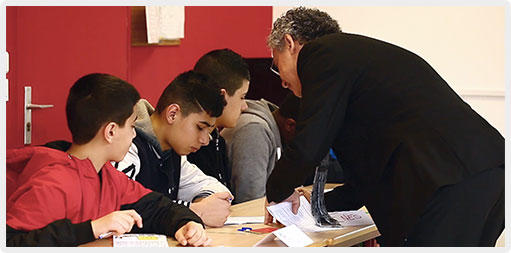
A simple goal: success! This could be the slogan of Energie Jeunes, an organisation founded in 2009 to combat students dropping out of education. The organisation’s special three-year programme seeks to develop commitment and self-discipline. The training is delivered by trained volunteers and is tailored to each year group. It enables students to firstly set and then keep their own personal commitment.
Through its support for Energie Jeunes, the Foundation is focusing its action on the Aubervilliers area, as the group’s head office moved there in autumn 2016. The Foundation’s commitment is backed up by the group’s employees. A call for volunteers was made on 16 May and interested employees will be able to support students in the French equivalents of Years 7, 8, 9 and 10. No prior expertise is required. Employees only need to be keen and have the spare time to spend three to six half-days a year in a secondary school. Over 3,000 young people will be trained in three years.

